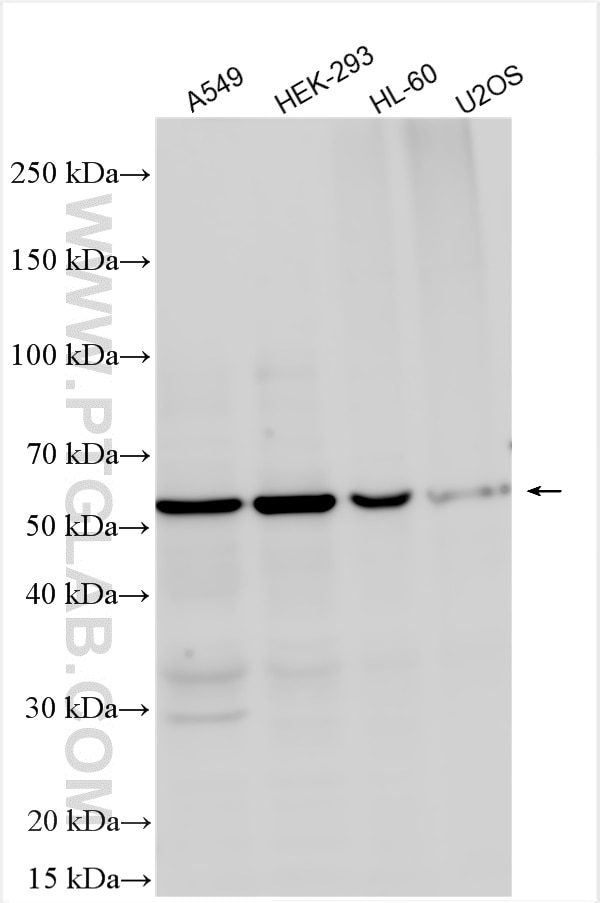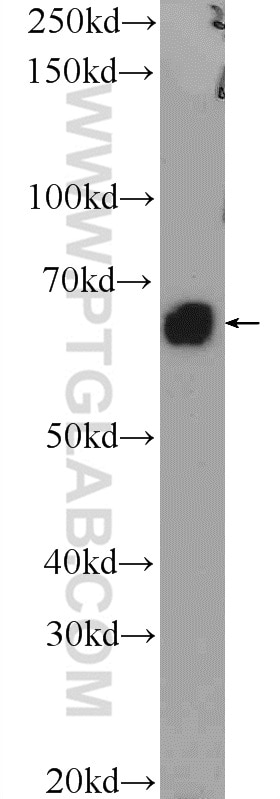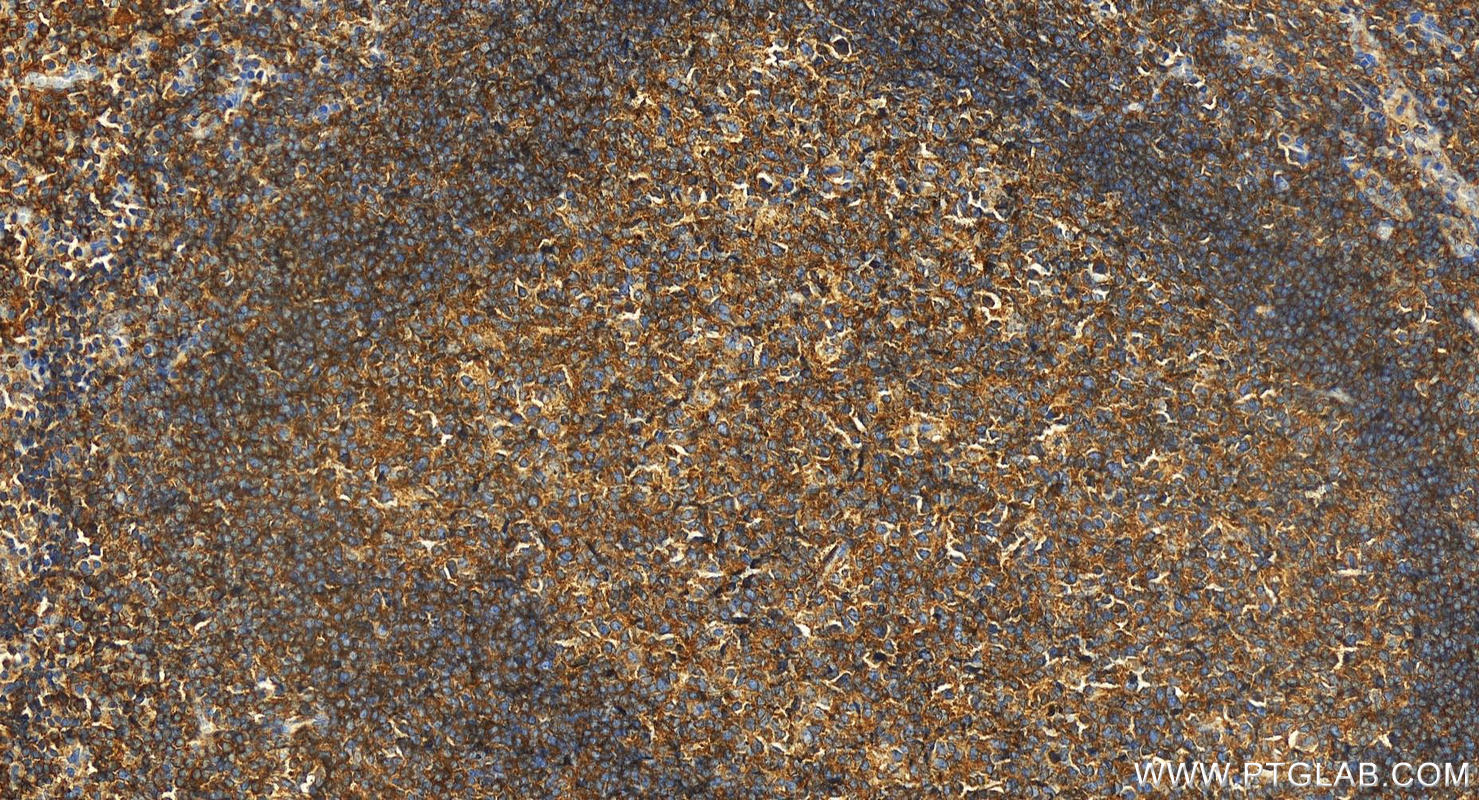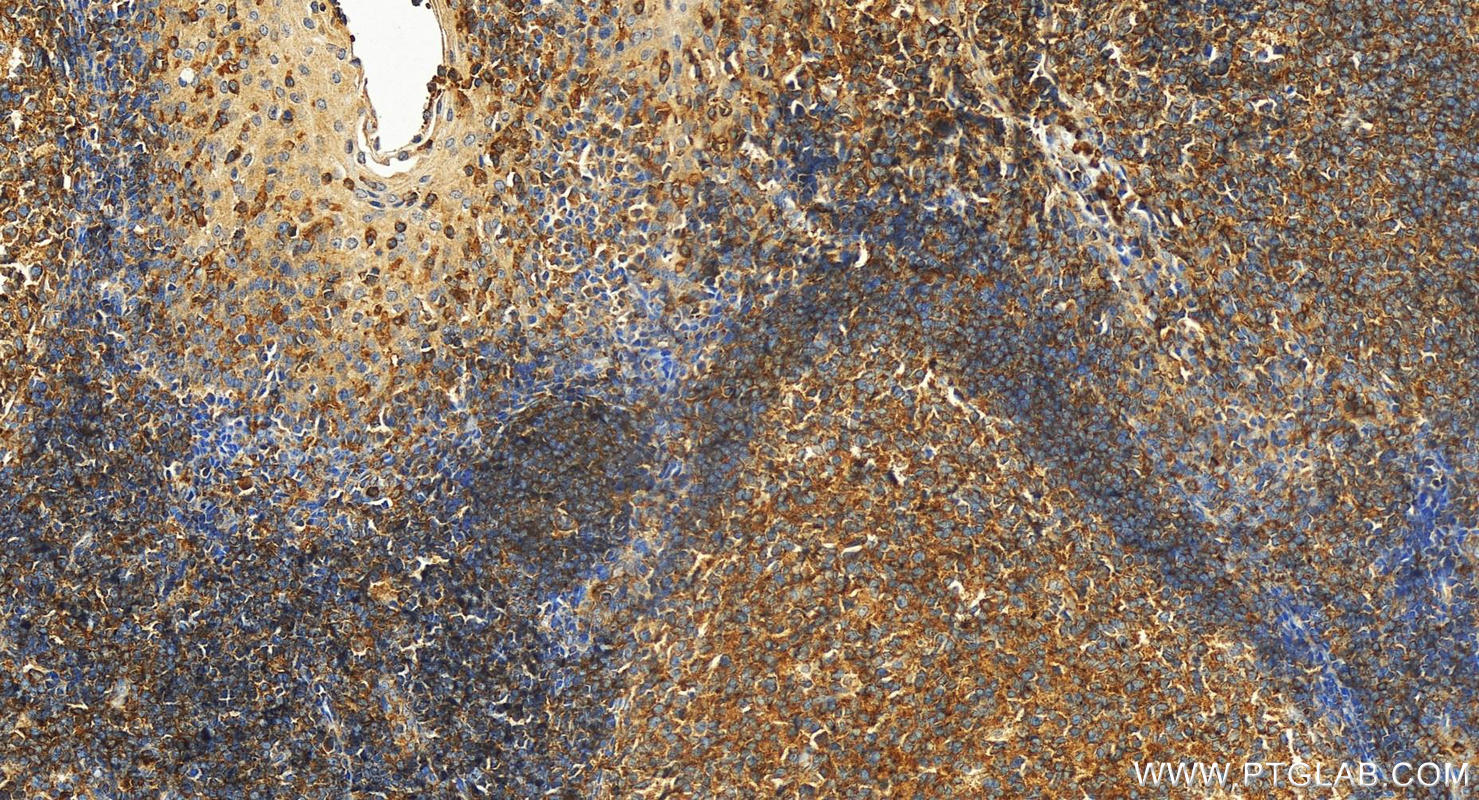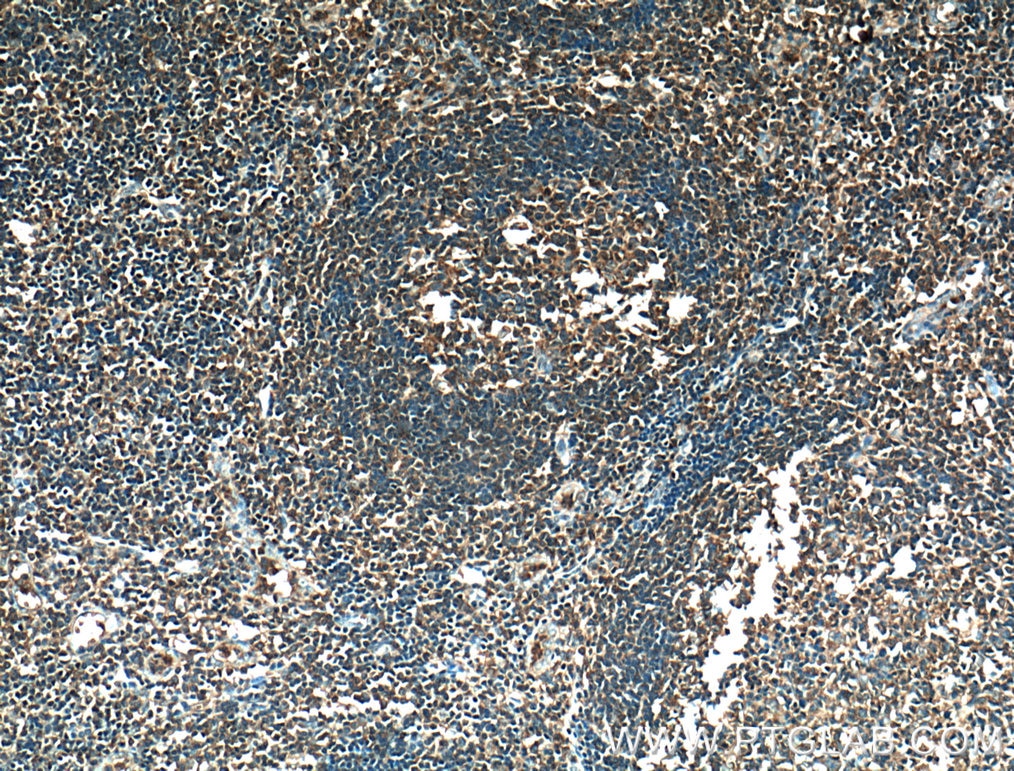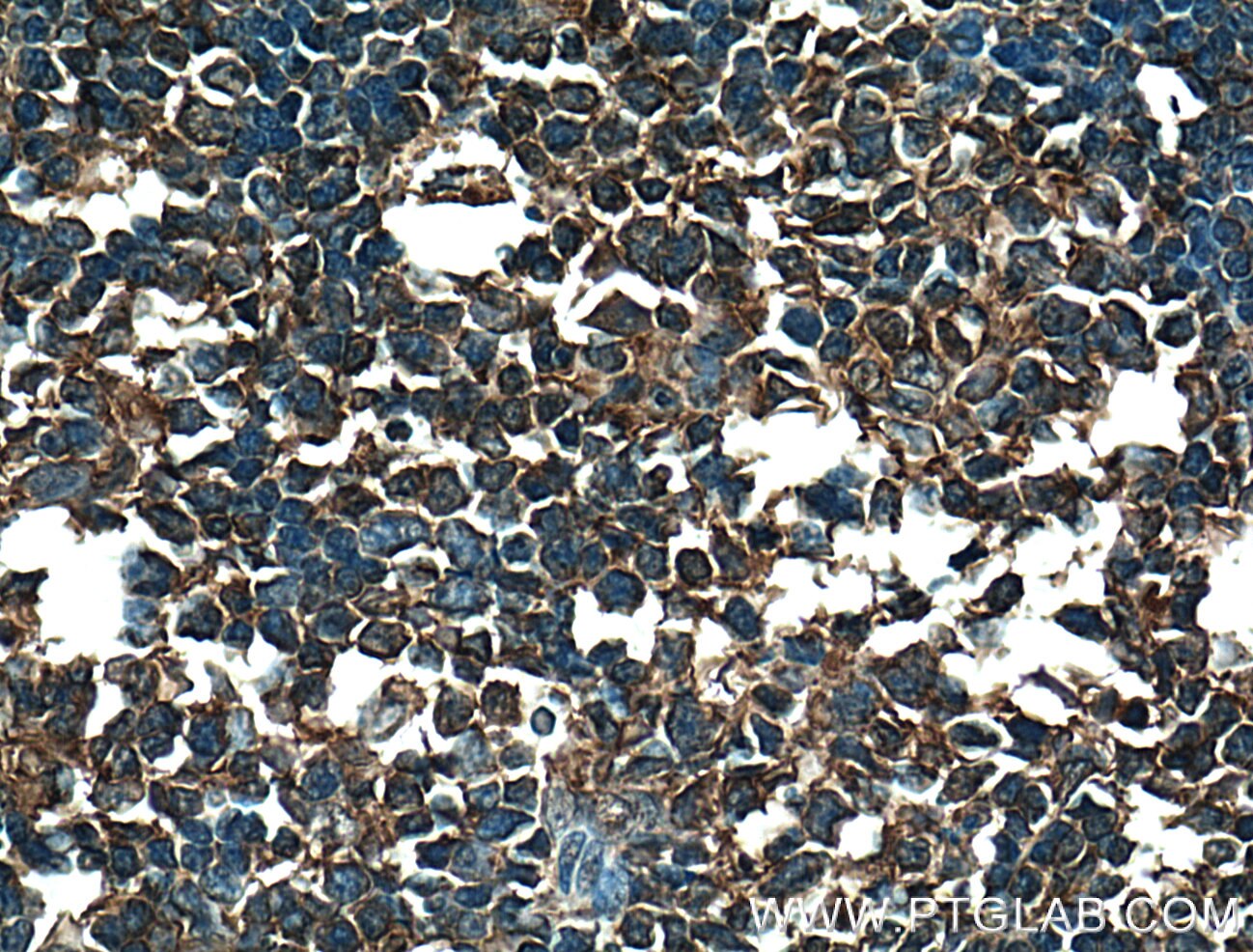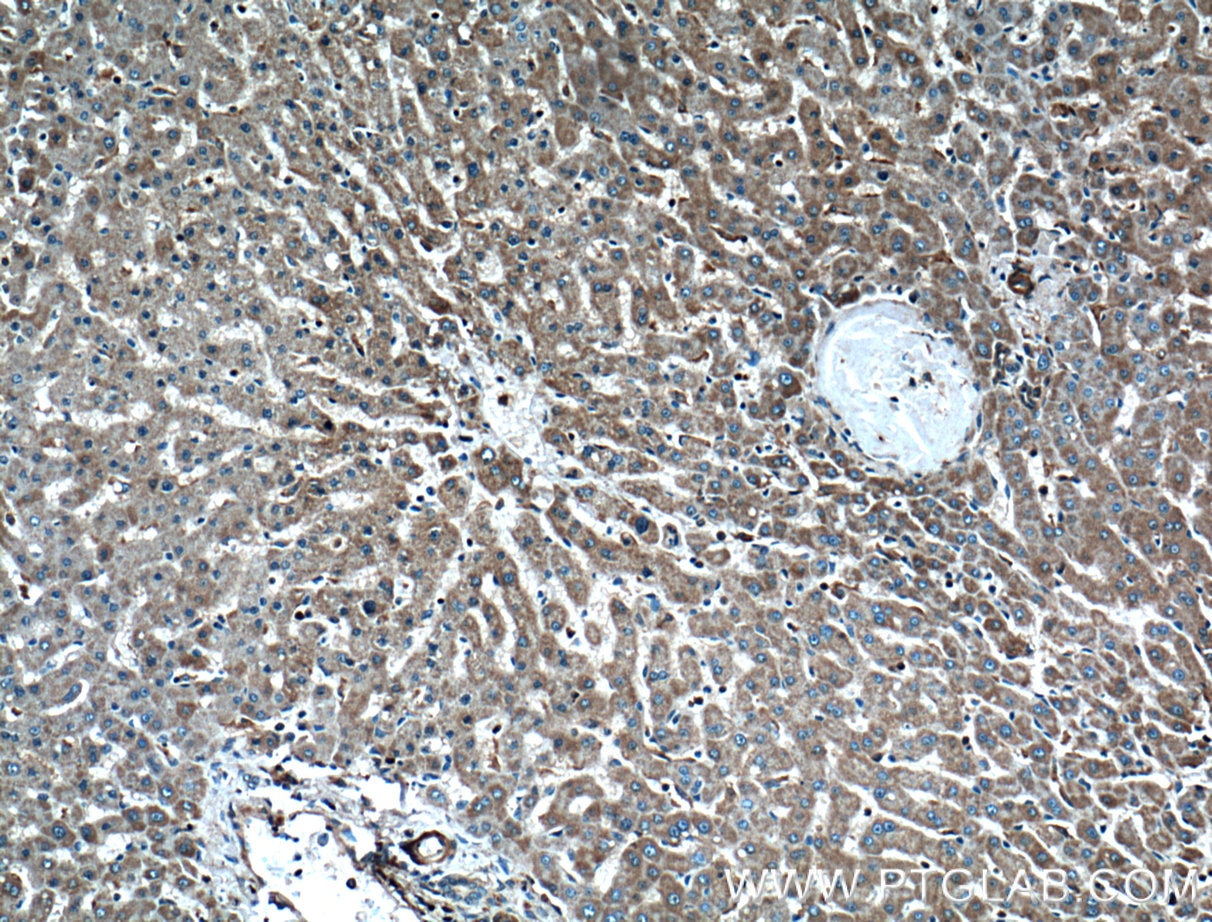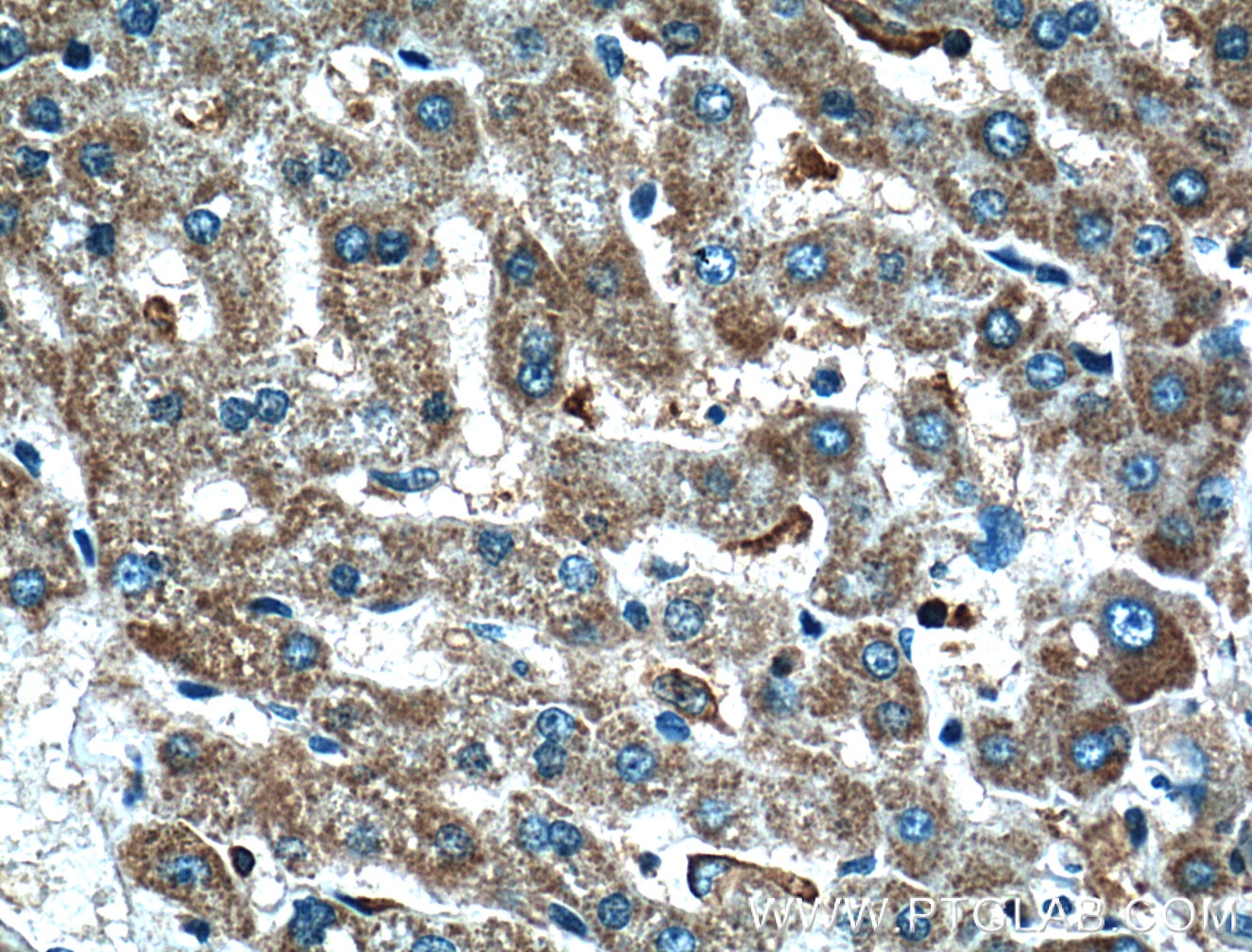BMP6 Polyklonaler Antikörper
BMP6 Polyklonal Antikörper für WB, IHC, ELISA
Wirt / Isotyp
Kaninchen / IgG
Getestete Reaktivität
human, Maus und mehr (1)
Anwendung
WB, IHC, ELISA
Konjugation
Unkonjugiert
Kat-Nr. : 55421-1-AP
Synonyme
Geprüfte Anwendungen
| Erfolgreiche Detektion in WB | A549-Zellen, HEK-293-Zellen, HL-60-Zellen, Mauslebergewebe, U2OS-Zellen |
| Erfolgreiche Detektion in IHC | humanes Tonsillitisgewebe, humanes Lebergewebe Hinweis: Antigendemaskierung mit TE-Puffer pH 9,0 empfohlen. (*) Wahlweise kann die Antigendemaskierung auch mit Citratpuffer pH 6,0 erfolgen. |
Empfohlene Verdünnung
| Anwendung | Verdünnung |
|---|---|
| Western Blot (WB) | WB : 1:500-1:1000 |
| Immunhistochemie (IHC) | IHC : 1:500-1:2000 |
| It is recommended that this reagent should be titrated in each testing system to obtain optimal results. | |
| Sample-dependent, check data in validation data gallery | |
Veröffentlichte Anwendungen
| WB | See 4 publications below |
| IHC | See 1 publications below |
Produktinformation
55421-1-AP bindet in WB, IHC, ELISA BMP6 und zeigt Reaktivität mit human, Maus
| Getestete Reaktivität | human, Maus |
| In Publikationen genannte Reaktivität | human, Maus, Ratte |
| Wirt / Isotyp | Kaninchen / IgG |
| Klonalität | Polyklonal |
| Typ | Antikörper |
| Immunogen | Peptid |
| Vollständiger Name | bone morphogenetic protein 6 |
| Berechnetes Molekulargewicht | 57 kDa |
| Beobachtetes Molekulargewicht | 57 kDa |
| GenBank-Zugangsnummer | NM_001718 |
| Gene symbol | BMP6 |
| Gene ID (NCBI) | 654 |
| Konjugation | Unkonjugiert |
| Form | Liquid |
| Reinigungsmethode | Antigen-Affinitätsreinigung |
| Lagerungspuffer | PBS with 0.02% sodium azide and 50% glycerol |
| Lagerungsbedingungen | Bei -20°C lagern. Nach dem Versand ein Jahr lang stabil Aliquotieren ist bei -20oC Lagerung nicht notwendig. 20ul Größen enthalten 0,1% BSA. |
Hintergrundinformationen
Bone morphogenetic protein 6 (BMP6) is also named as VG-1-related protein (VG-1-R, VGR-1) and VGR, and belongs to the TGF-beta family (PMID:33878365). Growth factor of the TGF-beta superfamily plays essential roles in many developmental processes including cartilage and bone formation (PMID:31019025). BMP6 participates in iron homeostasis, inhibits invasion by increasing adhesions and cell-cell type interactions and induces angiogenesis directly on vascular endothelial cells. BMP6 is coded by a tumor suppressor gene whose subexpression is related to the development and cancer progression; during neoplastic processes, methylation is the main mechanism by which gene silencing occurs (PMID:34706618). BMP6 plays an important role in the regulation of hepcidin/HAMP expression and iron metabolism by acting as a ligand for hemojuvelin/HJV (PMID:26582087). BMP6 initiates the canonical BMP signaling cascade by associating with type I receptor ACVR1 and type II receptor ACVR2B (PMID:18070108).
Protokolle
| PRODUKTSPEZIFISCHE PROTOKOLLE | |
|---|---|
| WB protocol for BMP6 antibody 55421-1-AP | Protokoll herunterladen |
| IHC protocol for BMP6 antibody 55421-1-AP | Protokoll herunterladenl |
| STANDARD-PROTOKOLLE | |
|---|---|
| Klicken Sie hier, um unsere Standardprotokolle anzuzeigen |
Publikationen
| Species | Application | Title |
|---|---|---|
J Neuroimmune Pharmacol Ghrelin Induces Ferroptosis Resistance and M2 Polarization of Microglia to Alleviate Neuroinflammation and Cognitive Impairment in Alzheimer's Disease | ||
Cell Tissue Res Bone morphogenetic protein 6 (BMP6) antagonises experimental proliferative vitreoretinopathy established by TGF-β2 stimulation in retinal pigment epithelial cells through modulation of the p38 and JNK MAPK pathways | ||
J Pharmacol Sci Icariin alleviates diabetic renal interstitial fibrosis aggravation by inhibiting miR-320a-3p targeting BMP6 | ||
J Assist Reprod Genet BMAL1 improves assisted reproductive technology outcomes in patients with polycystic ovary syndrome by targeting BMP6 and regulating ovarian granulosa cell apoptosis | ||
Geroscience Tilorone attenuates high-fat diet-induced hepatic steatosis by enhancing BMP9-Smad1/5/8 signaling |
